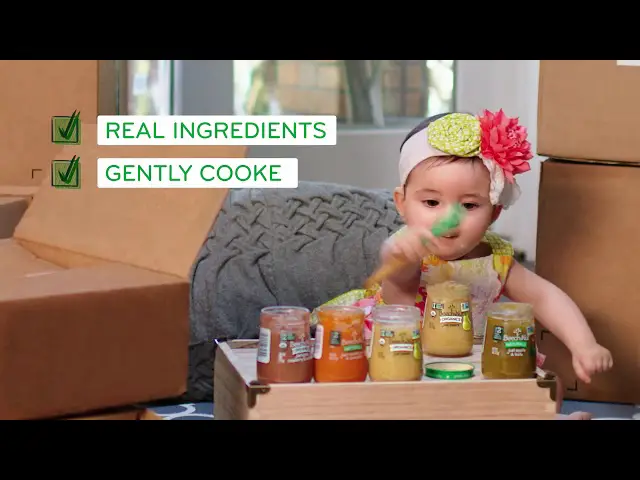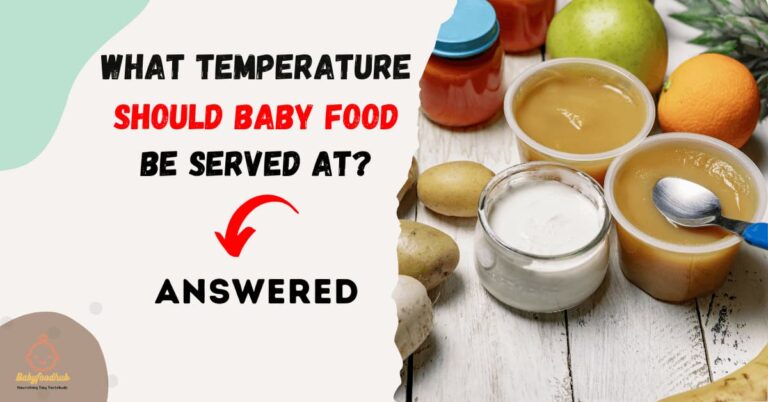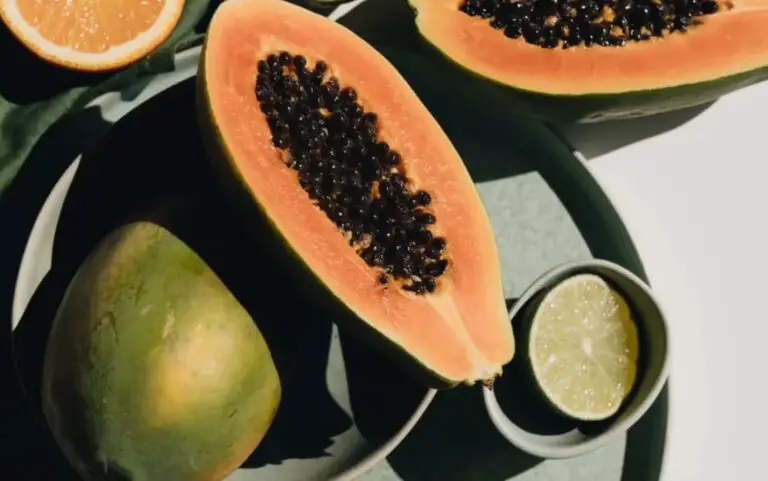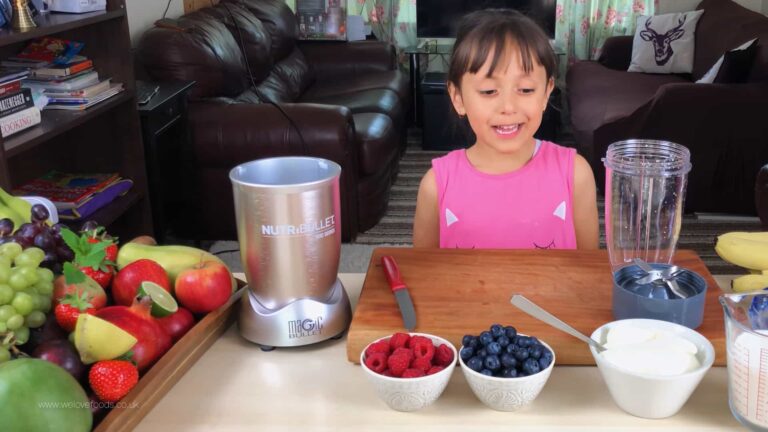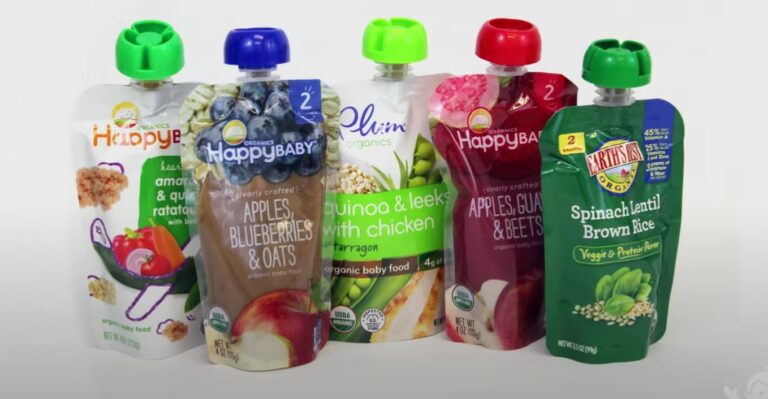Is Beech Nut Baby Food Safe? Uncover the Truth!
As of the latest information available, Beech Nut baby food products are considered safe. The company adheres to USDA guidelines and tests for contaminants.
Beech Nut Nutrition Corporation has been a recognized name in the production of baby food for generations, earning the trust of many parents when it comes to the quality and safety of their products. Their commitment to providing nutritious, safe options for infants has been at the forefront of their mission.
Parents often choose Beech Nut for its use of natural ingredients without artificial preservatives, colors, or flavors. The company’s approach includes rigorous testing for toxins, such as heavy metals, to ensure the safety and wholesomeness of their baby food. Moreover, any concerns about recalls or safety issues are typically addressed transparently, with the health of infants being the top priority. For parents looking for reliable baby food options, Beech-Nut strives to meet those needs through its dedication to safety and quality.
Beech-nut Baby Food Safety Analysis
Ensuring the safety and well-being of infants is paramount for any parent, especially when it comes to the food they consume. The Beech Nut Baby Food Safety Analysis offers a detailed look into one of the most trusted brands on the market, as parents everywhere strive to make informed choices about what to feed their little ones. Let’s explore the current standing, recent evaluations, and historical recalls to assess the safety of Beech Nut baby food products.
Current Reputation
Beech Nut maintains a strong reputation among parents and in the baby food industry for its commitment to quality. They emphasize the use of natural ingredients and have a track record of producing nutritious and wholesome baby foods. Transparency regarding product content and sourcing has reinforced their position as a trusted brand in the market.
Recent Food Safety Evaluations
Food safety is an ongoing commitment, and Beech Nut is steadfast in their protocols. The latest evaluations have yielded positive results, with many of their foods meeting or surpassing stringent safety standards. Let’s delve into the particulars:
- No significant levels of heavy metals were detected in the majority of products.
- Comprehensive screening for allergens and contaminants.
- Adherence to the Current Good Manufacturing Practice regulations enforced by the FDA.
Recall History
Beech Nut’s recall history is minimal, demonstrating their commitment to quality and safety. However, it is critical to stay informed about any potential recalls that could affect the health of infants. A summary of recent recalls includes:
| Date | Product | Reason for Recall |
| June 2021 | One lot of Beech-Nut Stage 1, Single Grain Rice Cereal | Levels of inorganic arsenic detected, which could potentially pose a health risk |
It’s vital for parents to monitor this recall information and check their baby food batches against any such announcements. These instances are rare, but caution is a non-negotiable part of ensuring infant safety.
Understanding Beech nut’s Safety Protocols
When it comes to feeding your baby, safety is paramount. Beech Nut understands that the concern for high-quality and safe baby food is at the forefront of any parent’s mind. The company is committed to maintaining robust safety protocols at every stage, from ingredient sourcing to the final product. Let’s explore how Beech Nut ensures that every jar of baby food is not only nutritious but also conforms to the highest safety standards.
Ingredient Sourcing Standards
Beech Nut gives top priority to the origin and quality of its ingredients. The company’s rigorous standards ensure that:
- Suppliers are carefully vetted to make certain only the best and safest ingredients are used.
- Organic ingredients are certified to meet all organic standards laid out by the USDA National Organic Program.
- Non-GMO verification ensures that products are produced according to best practices for GMO avoidance.
Manufacturing Processes
The production phase is critical for ensuring the safety of baby food. Beech Nut employs state-of-the-art manufacturing processes which include:
- Strict quality control measures at every point in the manufacturing line.
- Advanced food safety technologies to detect any potential contaminants.
- Regular auditing and testing to uphold the integrity of products.
Compliance With Regulatory Agencies
Beech-Nut doesn’t just meet industry standards – it seeks to exceed them. The company is in strict compliance with all regulatory agencies, such as:
| Agency | Role |
| The Food and Drug Administration (FDA) | Ensures the safety and quality of food products. |
| The United States Department of Agriculture (USDA) | Regulates and provides guidelines for organic and non-organic agricultural products. |
| The Environmental Protection Agency (EPA) | Sets limits on environmental contaminants in food. |
Additionally, Beech-Nut proactively updates its practices in line with new scientific findings and regulatory recommendations to guarantee the safety and wellbeing of its tiny consumers.
Examining Nutritional Content
Examining Nutritional Content is pivotal when assessing the safety and quality of any baby food on the market, and Beech-Nut is no exception. As parents meticulously scrutinize labels and ingredients to ensure their infants are receiving the best possible start in life, understanding what comprises Beech-Nut baby food is a must. Let’s delve into the nutritional profile of Beech-Nut and see how it stacks up in fostering your baby’s growth and development.
Essential Nutrients For Baby’s Growth
Proper nutrition is the cornerstone of infant development, and Beech-Nut dedicates itself to crafting recipes that are rich in essential nutrients. Here’s what you can expect:
- Proteins: For muscle and tissue development.
- Fats: Crucial for brain development and energy.
- Carbohydrates: They provide vital energy to fuel an active baby’s needs.
- Vitamins and Minerals: Including Iron for healthy blood, Calcium for bone growth, and Vitamins A, C, and D for the immune system and overall health.
Comparison With Other Baby Food Brands
Beech-Nut’s dedication to providing nourishing options is seen when placed side-by-side with other brands. A careful analysis shows that Beech-Nut often includes:
| Nutrient | Beech-Nut | Other Brands |
| Proteins | Higher content in meat-based options | Varies |
| Fats | Healthy fats from avocados and natural oils | May include processed oils |
| Carbohydrates | Complex carbs from whole grains and vegetables | May include simple sugars |
| Vitamins/Minerals | Fortified appropriately | Levels can widely vary |
Beech-nut Labeling Accuracy
Transparency in labeling is essential in instilling confidence in any baby food brand. Beech-Nut commits to labeling accuracy, giving parents peace of mind that what’s listed is what’s inside. This claim is backed by:
- Strict adherence to the FDA’s labeling regulations.
- Commitment to non-GMO ingredients; ensuring naturally sourced components.
- Audit trails for traceability of ingredients back to their sources.
In summary, Beech-Nut doesn’t only focus on the necessary nutrient inclusions but ensures that its values for transparency and honesty are reflected in its accurate food labels, making it a trustworthy option for parents.
Is Beech-nut Safe Baby Food? Investigating Claims
Welcome to our exploration of the pressing question many parents are asking: Is Beech-Nut safe baby food? Recent claims have surfaced regarding the safety of various baby food brands, and Beech-Nut Nutrition Company, a recognized name in the market, has come under scrutiny. As caregivers prioritize the well-being of their little ones, it is crucial to investigate these claims with a scrutinizing eye. In this post, we’ll dive into allegations surrounding Beech-Nut baby foods, address the company’s response, and consider independent testing results to provide clarity to concerned parents.
Examination Of The Allegations
The allegations against Beech-Nut first emerged from reports suggesting that certain baby foods contain levels of heavy metals, such as lead, arsenic, and cadmium, at concentrations above what health experts consider safe for infants. As these metals can pose significant risks to a child’s development, the claim has sparked widespread concern among parents and healthcare professionals alike.
Beech-nut’s Response To Concerns
In the wake of these allegations, Beech-Nut addressed public concern with a commitment to transparency and safety. The company issued statements highlighting its strict quality control measures and adherence to FDA guidelines. They stressed that the safety of their products remains their utmost priority and reassured consumers that they continuously monitor and test their baby foods at various stages of production.
Independent Testing Results
Given the severity of the claims, it didn’t take long for independent labs to conduct their own testing of Beech-Nut’s products. These third-party tests aimed to provide unbiased data regarding the presence of harmful substances in baby food. The results from these independent studies are crucial in validating or refuting the claims and helping parents make informed decisions about what they feed their children.
Detecting Contaminants In Baby Food
The safety of baby food is a significant concern for every parent, and rightfully so. The presence of contaminants in baby food can pose severe health risks to infants, who are far more susceptible to the harmful effects due to their developing bodies and immune systems. Knowledge about the common contaminants and the vigilance of manufacturers such as Beech-Nut in testing and ensuring the safety of their products is crucial for safeguarding our youngest generation’s health.
Common Contaminants In Baby Food
In the realm of baby food, certain contaminants demand special attention:
- Heavy metals: Lead, mercury, cadmium, and arsenic can all be found in trace amounts in various foods.
- Pesticides: Residues from agricultural chemicals used in the cultivation of ingredients.
- BPA: An industrial chemical used in some packaging that can potentially seep into the food.
- Mycotoxins: Toxins produced by molds that can grow on food crops.
Identifying these harmful elements at early stages is key to preventing their ingestion by babies and toddlers.
Beech-nut’s Testing Procedures
Beech-Nut Nutrition Company understands the gravity of ensuring the utmost safety in baby foods. The company implements a rigorous testing regimen:
- Ingredient analysis: Before being used, ingredients are thoroughly tested.
- Product testing: Finished products undergo a series of tests designed to detect any harmful substances.
- Third-party verifications: Regular audits and checks by independent laboratories reaffirm the internal quality controls.
These steps demonstrate Beech-Nut’s commitment to offering safe, nutritious options for infants.
Findings From Scientific Studies
Scientific research plays a pivotal role in understanding the safety profile of baby food. Recent studies have uncovered:
| Study | Findings | Implications |
| A 2021 Congressional report | Detection of high levels of toxic heavy metals in various baby foods. | An increased call for stricter regulations and testing among baby food manufacturers. |
| Research on organic foods | Lower pesticide residue levels in organic compared to conventional products. | Highlighting the importance of sourcing and the potential benefits of organic ingredients. |
It’s evident from ongoing research that continuous innovation in food safety testing is essential to maintain the highest standards for baby food products like those offered by Beech-Nut.
Consequences Of Unsafe Baby Food
When it comes to nourishing the youngest members of our family, the stakes are especially high. Beech-Nut has been a trusted name in baby food for generations, but recent concerns about the safety of baby food have put parents on high alert. Understanding the potential consequences of unsafe baby food is critical, not only for the immediate health of infants but for their long-term development as well.
Health Risks Associated With Contaminants
Infants are particularly vulnerable to harmful substances due to their developing bodies and organ systems. Exposure to contaminants like heavy metals, pesticides, and bacteria can lead to serious health complications. These may include digestive issues, allergic reactions, and even long-term cognitive challenges.
- Lead exposure can affect neurological development and cause behavioral issues.
- Arsenic ingestion has been linked to lower IQ scores and developmental delays.
- Certain pesticides can disrupt endocrine function and impact growth.
The Importance Of Choosing Safe Baby Food
Meticulous selection of baby food is not just a matter of preference, it’s a necessity. Selecting brands with rigorous testing protocols for contaminants is vital to safeguard the well-being of infants. Parents should look for transparent companies that regularly publish test results and adhere to strict safety standards.
| Attribute | Importance |
| Organic Certification | Reduces the risk of pesticide exposure. |
| Transparency | Builds trust through open communication about ingredient sourcing and safety measures. |
| Safety Standards | Ensures the product meets or exceeds national and international safety benchmarks. |
Long-term Effects For Infants
Early nutrition lays the foundation for lifelong health. The long-term effects of unsafe baby food may not manifest immediately, but they can significantly alter an infant’s trajectory. Nutrient deficiencies or toxic exposures can lead to lasting damage to physical and cognitive development, reinforcing the importance of vigilance in the early stages of a baby’s diet.
- Potential for chronic health conditions like asthma or eczema.
- Risk of developing learning disabilities or attention disorders.
- Possibility of stunted growth or delayed developmental milestones.
Considering Organic And Natural Alternatives
As parents and caregivers grow increasingly mindful of the food they provide to the littlest members of the family, many are turning their attention toward organic and natural alternatives. Convenience should never come at the compromise of quality or safety, and that’s precisely why options like Beech-Nut’s organic baby food line are gaining traction. This section will delve into the importance of choosing organic baby food, the particular benefits it offers, and the significance behind organic certifications.
Beech-nut’s Organic Product Line
Beech-Nut understands the significance of feeding infants food that is as pure and wholesome as possible. That’s why their organic line is crafted with non-GMO ingredients, sourced from farms that practice sustainable agriculture. Providing a variety of organic options, Beech-Nut’s lineup includes everything from single-ingredient purees for beginners to complex mixes for older babies ready to explore new tastes and textures.
Benefits Of Organic Baby Food
- Fewer Pesticides and Chemicals: Organic baby food, like that offered by Beech-Nut, allows little ones to avoid exposure to harmful pesticides and chemicals.
- Rich in Nutrients: Studies suggest that organic food may contain more beneficial nutrients due to the methods used in organic farming.
- Environmentally Friendly: Organic farming supports ecological balance and biodiversity, making it a sustainable choice for future generations.
- Better Taste: Many parents report that organic baby food has a fresher taste, which can help in developing a young palate.
Understanding Organic Certifications
When shopping for organic baby food, it’s important to look for labels that indicate the product is certified organic. In the United States, this means the food has been grown and processed according to federal guidelines addressing factors such as soil quality, animal raising practices, pest and weed control, and use of additives. Beech-Nut’s organic line meets these stringent standards, proudly wearing the USDA Organic seal. Parents can feel confident that these products are produced through approved methods, ensuring the organic integrity of the baby food from farm to table.
Credit: www.amazon.com
Frequently Asked Questions Is Beech-nut Safe Baby Food?
What Ingredients Are In Beech nut Baby Food?
Beech Nut baby foods are made with natural ingredients, such as fruits, vegetables, and meats, without artificial preservatives or additives.
Is Beech nut Baby Food Truly Organic?
Beech Nut offers an organic line that meets USDA organic standards, ensuring it’s made with certified organic ingredients.
Has Beech-nut Ever Faced Recalls?
Beech Nut has experienced recalls in the past, including a voluntary recall due to the potential presence of glass in 2015.
How Does Beech-nut Ensure Product Safety?
Beech Nut employs rigorous testing and quality control processes, including testing for heavy metals, to ensure the safety of their baby food products.
Can Beech-nut Baby Food Help With Allergies?
Beech-Nut’s simple ingredient lists and allergen-free options can be suitable for babies with certain food allergies, but always consult a pediatrician first.
Conclusion
Navigating baby food choices can be daunting, but Beech Nut strives to make this task easier. With a commitment to high-quality, natural ingredients, Beech Nut aims to offer safe, nutritious options for your little ones. Trusting a brand with your baby’s health is paramount, and Beech Nut’s reputation for safety and transparency places it as a worthy contender in the realm of infant nourishment.

